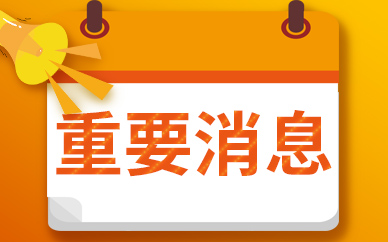初二下学期英语知识点总结
 【资料图】
【资料图】
英语一直是很多初中生的薄弱科目,很多学生都觉得到了初二下学期,英语知识的学习难度增加了。下面是小编为大家整理的初二下学期英语知识,希望对大家有用!
初二下学期英语知识点总结1
1、 Will
1)表意愿,用于各种人称陈述句。I will do anything for you. 我愿为你做任何事。 None is so blind as those who won"t see. 不愿看的人眼最瞎。
If you will read the这本书,我会把它借给你。
2)表请求,用于疑问句。
Will you close the window? It"s a bit cold. 请你把窗户关上好吗?有点冷。 Won"t you drink some more coffee? 再来一点咖啡好吗?
3)表示某种倾向或习惯性动作。
Fish will die out of water. 鱼离开水就不能活。 The door won"t open. 这门打不开。
The boy will sit there hour after hour looking at the traffic go by. 那男孩常常坐在那里好几个钟点,看着车辆行人通过。
2、Should
1)表义务。意为
You should be polite to your teachers. 你对老师应该有礼貌。You shouldn"t waste any time. 你不应该浪费时间。
2)表推测,意为
The film should be very good as it is starring first-class actors. 这部新电影是一流演员主演的,估计拍得很好。They should be home by now. 照说他们现在应当已经到家了。
3、Would
1)表意I said I would do anything for you. 我说过我愿意为你做任何事。
2)表委婉地提出请求、建议或看法。Would you like another glass of beer? 再来杯啤酒好吗?
Would you mind cleaning the window? 请把窗户擦一下好吗?
They wouldn"t have anything against it. 他们不会有什么反对意见。
3)表过去反复发生的动作或过去的一种倾向。Every time she was in trouble, she would go to him for help. 她每遇到麻烦都会向她求助。他告诉我盒子打不开了。
4、ought to
1)表义务,意为
2)表推测,暗含很大的可能,语气较弱。
Han Mei ought to know his telephone number. 韩梅该知道他的电话号码。
There"s a fine sunset; it ought to be a fine day tomorrow. 今天有晚霞,明天应该是个好天。
5、 used to 表示过去的习惯动作或状态,现在不复发生或存在。疑问式和否定式有两种。
He used to live in the countryside, but now he lives in the city.他过去住在乡下,现在住在城里。
There used to be a building at the street corner, bn. 街道拐角处过去有座楼房,现在拆了。
I usedn"t (didn"t use) to smoke. 我过去不抽烟。
Used you (Did you use) to go to school on foot? 你过去常步行去学校吗?
初二下学期英语知识点总结2
(一)need和dare的用法
need和dare既可用作情态动词,也可用作实义动词。用作情态动词时,主要用于否定句和疑问句。用作实义动词时,可用于各种句式。
1.用作情态动词--Need I come? --Yes, you must. --我需要来吗? --需要。 You needn"t telephone him now. 你现在不必打电话给他。
I don"t think you need worry. 我想你不必发愁。
She dare not go out alone at night. 她晚上不敢一个人出去。
How dare you say I"m unfair? 你竟敢说我不公平?
Not one of them dared mention this. 他们谁也不敢提这件事。
2.用作实义动词You don"t need to do it yourself. 你不必亲自做这件事。 We need to tell them the news. 我们需要把这消息告诉他们。
The table needs painting (to be painted.). 桌子需要油漆一下。
We should dare to give our own opinion. 我们要敢于提出自己的观点。
He did not dare (to) look up. 他不敢抬头看。
I dare day he"ll come again. 我想他会再来的。(I dare say…为固定习语)
(二)情态动词后跟完完成这项工作的。
He isn"t here. He must have missed the train. 他还未到,一定是没赶上火车。 Where can (could) he gone? 他能到那里去了呢?
You may (might) have read about it. 你可能在报上已经读到这件事了。 You could (might) have been more careful. 你本来可以更细心的。
He needn"t have worried it. 他本不必为此事担心。
There was a lot of fun at yesterday"s party. You ought to have come, but why didn"t you? 昨天的聚会非常有意思。你本应该来,为何不来呢?
初二下学期英语知识点总结3
1. How often do you exercise? 你(你们)多久锻炼一次身体?
How often + 助动词do(does或did) + 主语 + do sth.? 疑问词how often是问频率(多久一次),(在这里助动 词do(does或did) 是起帮助构成疑问的作用)与一般现在时或一般过去时连用,回答一般是用表示频率的副词
如:once, twice, three times, sometimes, often, quite, often, never, every day, once a week , twice a month , three times a month , three or four times a month 等。
2、 Mom wants me to get up at 6:00 and play ping-pong with her . want to do sth. 意思是“想要做某事”; want sb. to do sth.意思是“想要某人做某事”。
3、 She says it‘s good for my health.
be good for...表示“对有益(有好处)”;其反义为:be bad for...。(这里for 是介词,后跟名词、代词或动名词)
4、I try to eat a lot of vegetables , usually ten to eleven times a week .
try to do sth.表示“ 尽力做某事 ” ,不包含是否成功的`意思而try doing sth.表示“(用某一办法)试着去做某事”。
5、 That sounds interesting.
这是“主语+系动词+表语”结构的简单句。sound(听起来),look(看起来),smell (闻起来),taste(尝起来),feel(觉得),seem(好象),grow(变得),get (变得)等词在英语中可用作系动词,后跟形容词作表语。
6、It’s easy to have a healthy lifestyle, and it’s important to eat a balanced diet.
7、 forget to do sth. 忘记要做某事 forget doing sth. 忘记做过某事
8、. doing sth. takes sb. Some time/ money
=It takes sb. some time/money to do sth.=sb. spends some time/money (on sth.)
=sb. spends some time/money (in) doing sth.=sth. costs sb. some time/money
=sb. pay some money for sth.花费某人多少时间/金钱做某事/某人花费多少金钱/时间做某事
9、it’s easy to do sth. 做某事容易 it’s hard (difficult) to do sth.做某事难, It’s necessary to do sth.做某事必要
10、one of +复数名词(代词)其中之。
初二下学期英语知识点总结4
1.主语:
表示句子所说的是“什么人”或“什么事儿”,一般由名词,代词或相当于名词的词或者短语充当
例如:Gina is from Australia.
She often goes to the movies.
This kind of juice tastes good!
2.谓语:
主语发出的动作。一般是有动作意义的动词。谓语和主语在人称和数两个方面必须保持一致。
例如:We are both quiet.
He has a smart phone.
You should study harder.
Her parents are teachers.
3.宾语:
分为动词宾语和介词宾语,属于动作的承受者。
例如:He"s playing soccer.
Good food and exercise help me to study harder.
4.系动词:
表示状态或状态变化的动词,没有实际的动作意义。如be,感官系动词(look, sound, smell, taste和feel)、保持类系动词(keep, stay和remain)、状态变化类系动词(become、get、turn和go)等。
This picture looks so beautiful.
Keep working, you will see the post office on your right.
5.表语:
紧跟系动词后面的成分。说明主语是什么或者怎么样,由n. adj.或者相当于名词或形容词的词或者短语,和系动词一起构成谓语。
例如:Her mother is a bank clerk.
Are you ready?
We were at home last night.
6.定语:
修饰名词或代词的成分。作定语的出形容词外,还有代词、数词、名词、介词短语或相当于形容词的词或者短语。
例如:Peel three bananas.
What"s your name, please?
She"s a good basketball player.
7.状语:
修饰形容词、副词、动词或句子的成分。一般表示行为发生的时间地点目的方式程度等意义。通常有副词、介词短语或相当于的副词的词或短语来表示。
例如:People are all working hard.
Beijing is not very cold in winter.
8.补语:
分为宾语补足语和主语补足语。是对宾语和主语的补充说明,与其有主动或被动的逻辑关系。
例如:You should keep the room clean and tidy.
你应该让屋子保持干净整洁。
(You是主语,should keep是谓语,the room是宾语,clean and tidy是宾语补足语。)
This kind of food tastes delicious.
这种食物吃起来很可口。
(This kind of food是主语,tastes是系动词,delicious是表语。)
注意:主语、谓语、宾语、系动词、表语、补语是一个句子的主干成分;定语和状语是一个句子的修饰性成分,不是主干成分。
初二下学期英语知识点总结5
1.What’s the matter ? What’s the matter with you ? 你怎么啦?
=What’s the trouble with you?=What’s wrong with you?
I have a cold / have a sore back / have a stomachache
2.That’s too bad. You should / shouldn’t 那太糟糕了. 你应该/不该…
He shouldn’t eat anything = He should eat nothing. 他不应当吃任何东西.
3.I’m not felling well . 这里well表示身体状况,不能用good代替
I don’t feel well= I’m not feeling well 我感觉不舒服.
4.When did it start ? About two days ago .什么时候开始?大约两天前
5.I hope you fell better soon . 我希望你很快好起来
这里better是well的比较级
6.Traditional Chinese doctors believe we need a balance of yin and yang to be healthy. 传统中医认为我们需要阴阳调和以保持身体健康。
这里 to be healthy是动词不定式短语,作目的状语
7.You should eat hot yang foods, like beef. 你应该吃一些像牛肉之类的阳性食物。
8.Eating Dangshen and Huangqi herbs is also good for this.
吃党参和黄芪等草本植物也对这有好处。
9.People who are too stressed out and angry may have too much yang.
太紧张易怒的人或许吃了太多的阳性食物。too much后跟不可数名词,而too many后跟可数名词复数
10.It’s easy to have a healthy lifestyle ,and it’s important to eat a balanced diet . 有一个健康的生活方式很容易,饮食平衡是很重要的。→ It’s easy to do sth . 做某事容易 / It’s important to do sth . 做某事重要
11.You should rest for a few nights. 你应该休息几个晚上
12.I study late every night, sometimes until 2 am, but I don’t think I’m improving.
我每天晚上学到很晚,有时到凌晨2点钟,但我认为我没有提高。
13.believe in 信任某人,强调品质,believe sb.相信某人的话
I believe him, but I can’t believe in him.
他的话是真的,但是我不信任他这个人。
初二下学期英语知识点总结6
1. Welcome back to school!欢迎返校!
2. have fun doing sth. 做某事很开心We have fun talking with Mr. Green.
3. make fun of取笑,捉弄 It’s wrong to make fun of the old people.
4. call one’s name 点名 The teacher is calling the students’ names.
5. on time 准时,按时 He always comes to school on time.
6. with one’s best wishes 致以最美好的祝愿
7. Best wishes to you for Teachers’ Day.致以教师节最美好的祝愿
8. It doesn’t matter.没有关系
9. wish sb.… 祝愿某人……(后常接名词)。We wish you a happy New Year!
10. wish sb. to do sth.希望某人做某事I wish you to be a teacher.
11. Thanks for+n./v.ing.因某事向某人致谢Thanks for teaching us so well.
12. give a talk做报告 Mr. Green is going to give us a talk on English study.
13. have a talk听报告 We are going to have a talk in the hall this afternoon.
14. think about考虑,思考 He is thinking about going to Japan for a holiday.
15. think of 想到,想起 We should think more of others.
16. what to say. 动词不定式可以接在where, how, when, which, who等疑问词后,构成短语。
I don’t know where I shall go.=I don’t know where to go.
Please tell me how I can do the work.=Please tell me how to do the work.
17. have an idea, have some ideas有主意
18. I have no idea=I don’t know不知道
19. the difference between…and…与…之间的不同点
20. given name=first name名字full name全名
21. be different from 与……不同be the same as 与……相同The weather in Beijing is different from that in Australia=The weather in Beijing is not the same as that in Australia.
22. the meaning of… ……的意思What’s the meaning of this word?=What does this word mean?=What do you mean by this word?
23. be important to sb. 对某人很重要English is important to us.比较:It’s important for us to learn English well.对我们来说学好英语很重要。
24. be short for简称,缩写式 TV is short for Television.
25. call…for short 简称为We call Television TV for short.
26. be/feel sorry for sb. 为某人感到难过I feel sorry for you.
27. be/feel sorry for sth./doing sth. 为(做)某事感到后悔/抱歉I am sorry for being late.
28. be sorry to do sth.因做某事很难过I am sorry to hear that.用于听到坏消息表示同情。
29. be sorry that +主谓句。因某事而感到后悔I am sorry that I am late.
30. say sorry to sb. 向某人道歉You should say sorry to your teacher.
31. be afraid of sb./sth/doing sth. 害怕某人/某事/做某事I am afraid of climbing trees.
32. be afraid to do sth不敢去做某事 She is afraid to go out at night.
33. be afraid that+主谓句。 恐怕…… I am afraid that I can’t help you.
34. only a little 仅有一点点I know only a little English.
35. only a few仅有几个The farm is only a few kilometers away.
36. know a lot about…了解很多关于……的情况
37. make sb. sth=make sth. for sb.为某人制作……类似词组有:buy/mend/cook/grow sb. sth=buy/ mend/cook/grow sth. for sb.为某人购买/修理/烹调/种植某物
还有一些动词也可跟双宾语,但它们所用的介词是to,而不是for。例如:
pass/give/ show/teach/tell sb. sth=pass/give/show/teach/tell sth. to sb.
38. sound like 听起来像……It sound like a bird.
初二下学期英语知识点总结7
how often / how long / how soon / how far
how often: “隔多久一次”,指动作的频率,答语常用often, never, twice a week等表示频率的副词或短语。(用于一般现在时或一般过去时)
How often do you go to the movies?
Once a week. / I never go to the movies.
how long: 1)“(延续)多长时间”,回答用for+时间段或since+时间点。(用于各种时态);2) 询问物体的长度。
How long is the Yellow River?
How long have you learned English?
I have learned it for 5 years.
I have learned it since 5 years ago.
how soon: “还要多久才…,多久以后”,答语常用“in+时间段”。(用于一般将来时)
How soon will she come back?
She’ll come back in an hour.
how far: “多远”,询问距离。
Can you tell me how far it is from here to your home?
How far is it from your home to our school?
It’s 2 kilometers away.
初二下学期英语知识点总结8
1. foot---feet 脚 <复> tooth---teeth 牙齿 <复>
2. have a cold 感冒
3. have a stomachache 胃疼
4. have a sore back背疼
5. have a sore throat喉咙疼
6. have a fever发烧
7. lie down and (have a)rest 躺下休息 have a rest 休息
8. hot tea with honey 加蜜的热茶
9. see a dentist 看牙医 see a doctor 看医生
10.drink lots of water多喝水
11.lots of ,a lot of, a lot
a lot of=lots of,可以修饰可数名词复数和不可数名词,一般用在肯定句中。:
There are lots of ( a lot of) books in our library.
There is a lot of water on the ground
a lot,是一个副词词组,跟动词连用;表示十分的意思;Thanks a lot.
12. have a toothache牙疼
13. That’s a good idea好主意
14. go to bed 去睡觉 go to bed early 早上床睡觉
15. feel well感到好 feel ill 感到不舒服
I don’t feel well= I’m not feeling well
我感觉不舒服.
16. start doing/ to do sth开始做某事
TO DO 是一件事情完成了,开始做另外一件事情DOING是原来的那件事情做到一半,现在又开始做了,是同一件事情。
17. two days ago两天前
18. get some rest 多休息, 休息一会儿
19. I think so我认为是这样
20. be thirsty口渴
21. be hungry 饥饿
22. be stressed out紧张
23. listen to music听音乐
24. healthy lifestyle健康的生活方式
25. traditional Chinese doctors传统中医
26. need to do sth 需要做某事
27. a balance of yin and yang阴阳平衡
28. for example例如
29. too much yin太多的阴, 阴气太盛
too much + 不可数名词 太多的…
much too +形/副 实在太… 极其,非常
too many + 可数名词复数 太多的…
30.be good for sth./ doing sth. 对什么有益 ,对什么有好处
be bad for sth./ doing sth. 对什么有害
be good to 对…好
be good at =do well in 在……方面好,擅长
31.get good grades 取得好成绩
32.angry 用法
be angry with sb生某人的气
be angry at/ about sth 就某事生气
33.Chinese medicine 中药
34.be popular in + some place 在某地很流行
Chinese medicine is now popular in many western countries.
现在中药在许多西方国家受欢迎。
35.in western countries在西方国家
36.It’s easy to do sth做某事是容易的。
It’s important to do sth . 做某事很重要。
37.balanced diet平衡饮食
38.get tired 感到疲倦 be/get tired
39.go out at night在晚上出去
40.stay healthy 保持健康 =keep healthy=keep in good health
41.at the moment此时,此刻= now
42.enjoy sth. =like sth. (名词)喜欢某物,
enjoy doing sth.喜欢做某事=like dong sth
enjoy oneself (myself, yourself,herself, himself, themselves, ourselves, itself(反身代词) 玩得高兴,过得愉快=have a good time = have a wonderful time =have fun
43. conversation practice会话练习
44. host family 寄宿家庭
45. have a lot of headaches经常疼痛
I’m tired and I have a lot of headaches. 我很疲劳,而且经常头痛。
46. a few + 可数名词复数 少许…
a little + 不可数名词/形/副 一点…
47.He shouldn’t eat anything
=He should eat nothing. 他不应当吃任何东西.
48.sleep 8 hours a night每晚睡眠八小时
50.take medicine 吃药 服药
关键词: 初二下册英语










